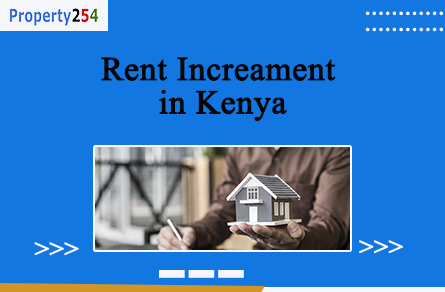Increasing rent for your commercial or residential tenants is tough during harsh economic times. However, everyone is feeling wrath, and we have to survive anyway.
So, as a landlord, you can increase rent, but you should follow a good procedure that’s friendly to your tenants. Remember, an abrupt rent increment can send away your tenants, increasing the vacancy rate and reducing your returns.
This guide will show you how to increase rent without violating the tenant’s rights and losing clients.
In Kenya, we have the landlord and tenant act that will guide you. As much as rents and property costs are rising, tenants and buyers are protected against short-term rent increments.
This bill applies to residential and tenancy for business premises.
Here is a breakdown of how to increase rent in Kenyan houses.
- The landlord and tenant bill
- Why you should raise the monthly rent
- How to calculate rent increment
- What to know before rent increment
The Landlord and Tenant Bill
This bill protects both tenants and landlords from misusing each other. For instance, a landlord can only increase rent once per year for residential properties and once in two years for commercial properties.
The landlord should also give the tenant written notice of 90 days before increasing the rent. Failure to do that means a tenant can obtain a court order to allow them to stay on the premises until they get somewhere else.
The bill also says that a landlord cannot deny tenants water and electricity even after defaulting on rent.
Why You Should Increase Rent
There are various reasons that trigger landlords should raise the rent.
- Market trends
As you all know, real estate investment is expensive, and property costs always increase. So, to gain enough cash flow, a landlord should increase the rent.
Although the tenants never receive news of rent increments ceremoniously, you should always find a way to increase rent to gain from your investments.
- High cost of living
Everyone feels the cost of living, whether a tenant or a landlord. The cost of living also increases property prices. In addition, maintenance costs also rise with the cost of living. Therefore, as a landlord, you should increase monthly rent to cope with the current market.
- Property improvements
Let’s say your rental houses had no ceilings or tiles. Once you renovate to add them, you should raise the rent to cover the new standards. The landlord and tenant bill allows landlords to terminate the tenancy, renovate their buildings, and use them for desired purposes.
- Improved neighborhoods
As neighborhood standards rise, so should the rent in the area. An improved neighborhood calls for more tenants hence raising the demand. As a result, landlords increase the rent to cover high standards like improved local roads, security, and other social amenities.
- Property tax increments
Once the government poses more tax on properties, you should increase rent to cover that new expense.
How To Calculate Rental Increment In Kenya
Rental increment should be a percentage between one and ten of the monthly rent.
For example, if you charge a monthly rent of Ksh.5000 and would like to increase it by 4%.
The rental increment will be:
4%×5000=200
So, the total rent will be 5200.
After settling on the final rent increment, write a letter to each tenant explaining when the new rent requirements will be effective. You can tell them your reasons for increasing the rent if you wish. But it’s not mandatory. However, to avoid losing tenants, you can reason with them about why you are increasing rent.
What to Know Before Increasing Rent in Kenya
- While thinking of a rent increment, consider abiding by the landlord and tenant act (2021). You should ensure your timeline adheres to that recommended on the bill.
- Always research market and neighborhood trends before coming up with an increment figure.
- The property status should match the new rent. Don’t charge more rent for an average-looking house. Instead, renovate before hiking the rent.
Summing Up
As long as property costs keep skyrocketing, rent will also increase. Therefore, as a landlord, prepare to raise your house rent by a small percentage so that you stay in business. Remember that negative cash flow can result in closing down your real estate business, which is a bad idea.
Frequently Asked Questions
- Can a landlord evict me for no reason?
A landlord should follow eviction procedures as stated in the landlord and tenant bill. However, there are exceptions, like when a tenant fails to pay three consecutive monthly rents or when a tenant violates the law and also damages the property. The landlord should give tenants at least three months’ notice before evicting them.
- What happens if a tenant fails to pay a rent increment?
The best solution is to end their tenancy after the fixed term ends. There is no need to drag each other around.
- What happens when a landlord decides to sell their property?
The tenants can stay. The new owner will carry on with the property management. However, the new landlord can issue an eviction notice of three months if they wish to renovate the houses.
- What’s the fair price to increase the rent?
A percentage of less than 10% of the rent is enough to increase the rent. A bigger percentage can result in a high vacancy rate, which is not a good indication of your returns.

Leave a Reply